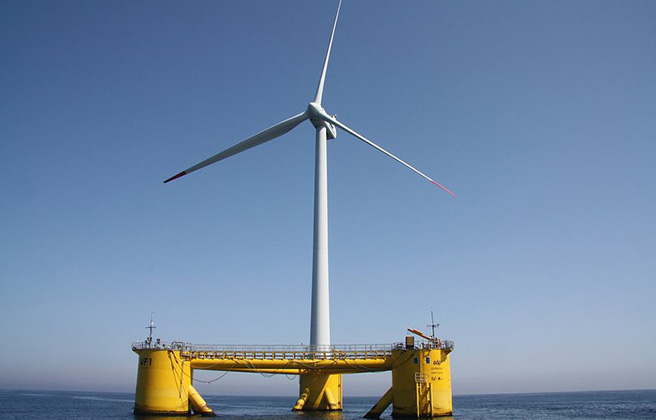Connecting Climate Justice and LGBTQ+ Justice: Three Youth Activists Fighting for Both
Jul 25, 2024
 Credit: ran liwen
Credit: ran liwen
Every week, we round up five of the best good climate news stories we’re celebrating. This week we cover construction for offshore wind, Vermont’s Climate Superfund Act, new transmission guidelines from FERC, a push to reduce textile waste, and Minnesota’s largest solar project to date.

The first turbine foundation has been installed at Revolution Wind off the coast of Rhode Island and Connecticut. The development is set to become Rhode Island and Connecticut’s first utility-scale offshore wind development, and is the first multi-state offshore wind project in the country.
This is a huge milestone for the project which, once completed, will generate enough clean, affordable electricity to power 350,000 homes across both states. Revolution Wind is also expected to create 1,200 new jobs in the clean energy sector and accelerate investments in the clean energy economy to help Rhode Island and Connecticut reach their climate and clean energy goals.
Source: Ørsted

Vermont’s legislature has passed a first-of-its-kind bill that would make fossil fuel companies liable for damages caused by extreme weather disasters fueled by climate change. Called the Climate Superfund Act, the bill is modeled after the federal Superfund law that holds polluters accountable for cleaning up toxic waste sites.
Under the bill, fossil fuel companies would have to reimburse the government for the cost of modernizing and weatherproofing infrastructure, as well as address public health and safety in the aftermath of storms and climate change related events.
Research clearly demonstrates that carbon pollution has contributed to the severity and frequency of extreme weather. New England alone has experienced a 60% rise in precipitation during its heaviest rain days. In Vermont, this led to a catastrophic flood last July which cost the state $2.2 billion. The bill is now headed to the desk of Republican Governor Phil Scott, who has not indicated whether he will sign it.
Source: NBC News

The Federal Energy Regulatory Commission (FERC) announced new rules that will improve energy transmission, bring more clean energy online, and make electricity more affordable and reliable. The Commission also released guidance for assessing the impact of new projects so that consumers will only help pay for those that benefit them.
The new rules will require transmission owners to consider utilizing technology to increase the capacity of the existing electrical grid and to take long-term data regarding future energy demand into account when creating their plans.
By improving grid efficiency and reliability, and catalyzing the build out of the infrastructure necessary to bring clean energy developments online, these rules will help reduce reliance on fossil fuels in communities across the country.
Source: PoliticoPro, FERC

Bills are working their way through both the House and the Senate that propose the federal government’s first-ever investment in textile recycling. The bipartisan bills would dole out federal funding for research and loans to improve textile recycling methods and programs in the U.S., where a very small percentage of textiles produced are recycled and most end up in landfills.
Currently, very few recycling facilities in the U.S. accept textiles due to their relatively low value, but investment from the government could change that and dramatically reduce textile waste across the country.
Source: E&E

Minnesota utility company Xcel Energy is building a massive solar development in Becker, MN. The project will partially replace the nearby Sherco coal generator complex, currently the state’s largest power plant and biggest emitter of greenhouse gasses. By replacing coal with solar, the plant aims to reduce its emissions by 50% of 2005 levels by the end of the decade.
Once completed in 2026, the development will be the fifth-largest solar project in the country and will generate 710 megawatts of clean energy, enough to power over 500,000 homes. It will also provide good paying, union jobs to residents of Becker who are currently employed at the retiring coal plant.
Source: Canary Media
Check out the Power Source Blog and follow us on Instagram or Twitter for more Good Climate News every week.